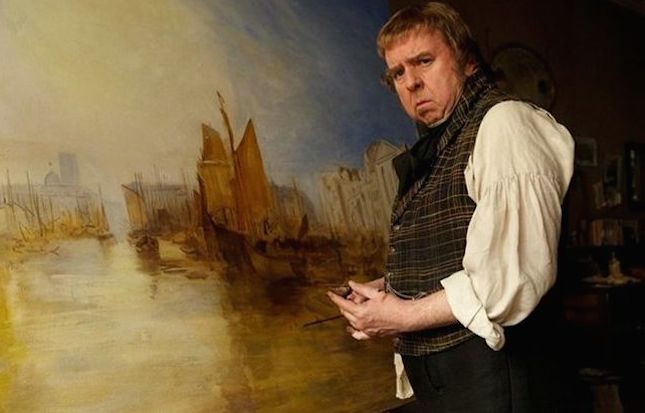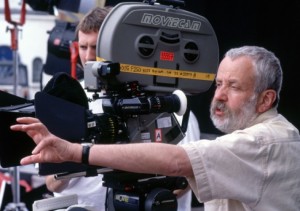By Jake Howell jake.howell@utoronto.ca
Countdown To Cannes: Mike Leigh
 The last in a series of snapshots outlining the nineteen directors in the 67th Palme d’Or Competition.
The last in a series of snapshots outlining the nineteen directors in the 67th Palme d’Or Competition.
Background: English; born Salford, Greater Manchester, England 1943.
Known for / style: Naked (1993), Secrets & Lies (1996), All or Nothing (2002), Vera Drake (2004), Happy-Go-Lucky (2008), Another Year (2010); a playwright in addition to writing and directing films; improvised and / or organic approaches to character creation; unassuming realism; regularly and repeatedly working with some of the United Kingdom’s greatest actors; depicting London on film.
 Notable accolades: Winner of the Palme d’Or in 1996 (Secrets & Lies), Leigh has been nominated for a total of seven Oscars (five times for his writing, two for directing). He’s won a handful of BAFTAs, a British Film Institute Fellowship, and also Best Director at Cannes (Naked, 1993). Also at Cannes are two Ecumenical Jury wins (Another Year, 2010 and Secrets & Lies). Leigh, who has been lauded by film societies the world over, also won Venice’s Golden Lion in 2004 for Vera Drake.
Notable accolades: Winner of the Palme d’Or in 1996 (Secrets & Lies), Leigh has been nominated for a total of seven Oscars (five times for his writing, two for directing). He’s won a handful of BAFTAs, a British Film Institute Fellowship, and also Best Director at Cannes (Naked, 1993). Also at Cannes are two Ecumenical Jury wins (Another Year, 2010 and Secrets & Lies). Leigh, who has been lauded by film societies the world over, also won Venice’s Golden Lion in 2004 for Vera Drake.
Film he’s bringing to Cannes: Mr. Turner, a biographical depiction of J.M.W. Turner, a British artist. Joining Leigh for a sixth time is Timothy Spall as the title protagonist, and the film looks at the “last quarter century of the great if eccentric” painter. From the Cannes program book: “Profoundly affected by the death of his father, loved by a housekeeper he takes for granted and occasionally exploits sexually, he forms a close relationship with a seaside landlady with whom he eventually lives incognito in Chelsea, where he dies. Throughout this, he travels, paints, stays with the country aristocracy, visits brothels, is a popular if anarchic member of the Royal Academy of Arts, has himself strapped to the mast of a ship so that he can paint a snowstorm, and is both celebrated and reviled by the public and by royalty.” Leigh’s again hired his go-to cinematographer Dick Pope to shoot the film. The cast is filled out with Dorothy Atkinson and frequent Leigh collaborators Marion Bailey, Paul Jesson, Lesley Manville, Martin Savage, and Ruth Sheen.
Could it win the Palme? Mike Leigh will be competing against his British realist contemporary Ken Loach—also a fellow Palme d’Or winner—and if either of these directors are to double-dip in gold, it’s Leigh. The cast is stacked with a host of classically trained actors and Leigh’s patient, sensitive approach to drama just might hold the ticket. Timothy Spall and Mike Leigh are also a golden combination at Cannes, with the Spall-led Secrets & Lies winning the Palme in 1996.
Why you should care: “I wanted to make a film about Turner, the personality,” Leigh said in a clip commissioned by the Tate Modern. “He is so complex, and there’s so much of him to get your head around. Turner was a compulsive artist. Turner had to paint, had to draw, all the time. It was an obsession.” What’s more, Leigh has also gone to lengths to recreate certain Turner paintings for the picture, with certain in-film tableaus inspired by real works from the artist’s catalogue.
Follow Jake Howell on Twitter
Previous Entries:
Tommy Lee Jones
Atom Egoyan
Bennett Miller
Xavier Dolan
David Cronenberg
Nuri Bilge Ceylan
Naomi Kawase
Ken Loach
Michel Hazanavicius
Jean-Luc Godard
Bertrand Bonello
Jean-Pierre and Luc Dardenne
Andrey Zvyagintsev
Abderrahmane Sissako
Alice Rohrwacher
Olivier Assayas
Damian Szifron















